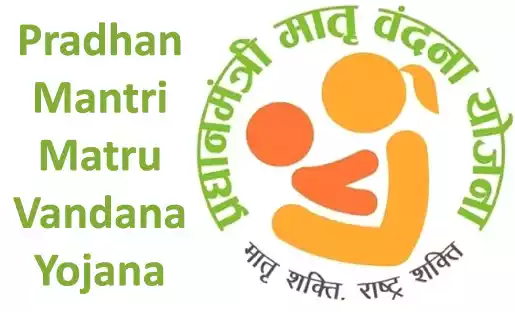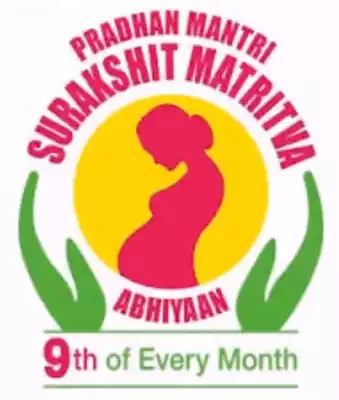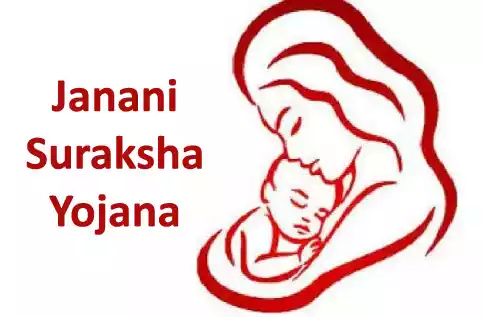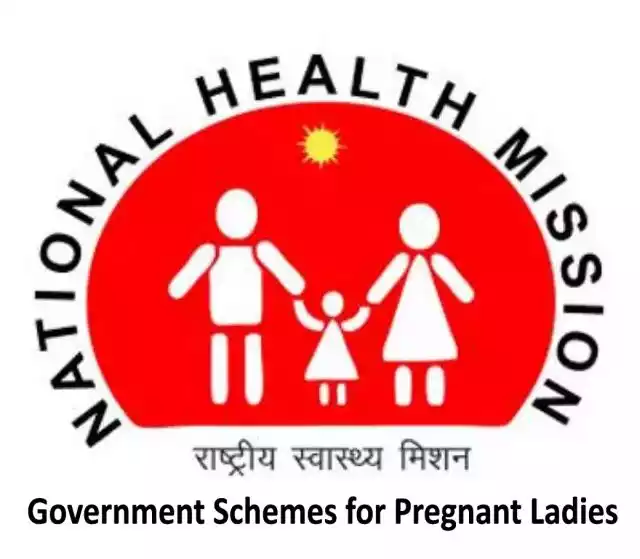Explore the Comprehensive Guide to Government Schemes for Pregnant Ladies in India. Discover how these initiatives empower and support expectant mothers with crucial healthcare, financial aid, and maternal benefits. Navigate the landscape of maternal well-being with insights on eligibility criteria, application processes, and the impact of these schemes. Unlock the key to a healthier and stress-free pregnancy journey with our in-depth analysis of the top government programs designed to nurture both mother and child. Stay informed, stay empowered – delve into the world of maternity support in India today!
Introduction
The journey of motherhood is a beautiful and transformative one, filled with excitement, anticipation, and of course, challenges. In India, the government recognizes the importance of this journey and provides pregnant women with a helping hand through a variety of well-designed schemes. These schemes aim to empower mothers-to-be by offering financial assistance, healthcare support, and essential resources, ensuring a healthy and secure pregnancy for both mother and child.
Embracing a Healthy Pregnancy:
Prenatal care is considered the cornerstone of a healthy pregnancy. It involves regular checkups, screenings, and guidance from healthcare professionals, ultimately leading to better outcomes for both mother and baby. However, access to such care can sometimes be hindered by financial constraints, especially for families from underprivileged backgrounds.
Bridging the Gap with Government Support:
Recognizing this need, the Indian government has implemented several innovative schemes specifically targeted towards pregnant women. These schemes aim to provide comprehensive support, covering aspects like:
- Financial assistance: Cash incentives and allowances to ease the financial burden associated with pregnancy and childbirth.
- Improved healthcare: Free access to prenatal checkups, deliveries, and post-partum care at government hospitals.
- Nutritional support: Distribution of nutritious food supplements to ensure adequate dietary intake during pregnancy.
- Childcare assistance: Providing childcare support and resources for mothers after delivery.
Empowering Mothers, Building a Healthier Future:
These government schemes play a crucial role in empowering mothers-to-be and contributing to a healthier future generation. By addressing financial barriers and providing access to essential resources, they ensure that every pregnant woman in India has the opportunity to experience a safe and healthy pregnancy, laying the foundation for a thriving future for both mother and child.
In this blog post, we will delve deeper into the various government schemes available for pregnant women in India, exploring their benefits, eligibility criteria, and application processes. We will also share success stories and address challenges faced by mothers in accessing these schemes. Ultimately, our goal is to empower mothers-to-be with knowledge and resources, enabling them to embrace a healthy and fulfilling pregnancy journey.
Major Government Schemes of India for Pregnant Ladies
The Government of India recognizes the importance of supporting mothers-to-be and has implemented several remarkable schemes to empower them during pregnancy and beyond. Let’s explore some of these game-changing initiatives:
- Pradhan Mantri Matru Vandana Yojana (PMMVY): Explain the scheme’s objectives, eligibility criteria, benefits offered, and application process.
- Pradhan Mantri Surakshit Matritva Abhiyan (PMSMA): Discuss the guaranteed services provided, benefits offered, and how pregnant women can avail them.
- Janani Suraksha Yojana (JSY): Highlight the scheme’s focus on institutional delivery, financial assistance provided, and eligibility criteria.
- Janani Shishu Suraksha Karyakram (JSSK): Explain the scheme’s free services offered to mothers and newborns, including transportation and nutrition.
- Other relevant schemes: Briefly mention any other national or state-specific schemes available for pregnant women.
1. Pradhan Mantri Matru Vandana Yojana (PMMVY)

The Pradhan Mantri Matru Vandana Yojana (PMMVY), a flagship program launched by the Government of India, aims to alleviate these anxieties and empower mothers-to-be with the financial support they deserve.
What is PMMVY?
The Pradhan Mantri Matru Vandana Yojana (PMMVY) is a centrally sponsored scheme that provides financial assistance of ₹5,000 to pregnant women and lactating mothers for their first live birth. This financial incentive aims to improve maternal health and well-being by encouraging:
- Early registration of pregnancy: This ensures access to essential prenatal care and reduces the risk of complications.
- Attending ante-natal checkups: Regular checkups help monitor the health of both mother and baby, ensuring early detection and management of any potential issues.
- Institutional delivery: Delivering in a healthcare facility under the supervision of skilled professionals increases the chances of a safe and healthy delivery for both mother and baby.
Who is eligible for PMMVY?
All pregnant women and lactating mothers of 19 years and above are eligible for PMMVY, provided they meet the following criteria:
- This is their first live birth.
- They are not in regular employment with the Central Government, State Governments, or Public Sector Undertakings (PSUs).
- They are not receiving similar benefits under any other law.
How to benefit from PMMVY:
To receive the benefits of PMMVY, women need to register themselves at their nearest Anganwadi center or government health facility. The registration process is simple and requires basic documents such as:
- Mother’s Aadhaar card
- Mother’s bank account details
- Husband’s Aadhaar card (if applicable)
- Pregnancy registration slip
Benefits of PMMVY:
PMMVY provides financial support in three installments:
- ₹1,000 on early registration of pregnancy (before 12 weeks)
- ₹2,000 after six months of pregnancy with at least one ante-natal checkup
- ₹2,000 after childbirth and registration, and vaccination of the child
This financial assistance can help families cover various pregnancy-related expenses, such as:
- Prenatal vitamins and supplements
- Transport to healthcare facilities
- Delivery costs
- Newborn care essentials
Impact of PMMVY:
Since its launch in 2017, PMMVY has positively impacted the lives of millions of mothers and their families across India. The scheme has:
- Increased the rate of early pregnancy registration.
- Improved the utilization of ante-natal care services.
- Promoted institutional deliveries, leading to a decline in maternal and neonatal mortality rates.
- Empowered women by providing them with financial autonomy and decision-making power.
Conclusion:
PMMVY stands as a testament to the government’s commitment to improving maternal health and empowering mothers in India. By providing financial assistance and encouraging healthy pregnancy practices, this scheme is paving the way for a brighter future for both mothers and children.
2. Pradhan Mantri Surakshit Matritva Abhiyan (PMSMA)

Pregnancy is a time of great joy and excitement, but it can also be a time of anxiety. Pregnant women are at increased risk of health complications, so it is important to receive regular prenatal care. The Pradhan Mantri Surakshit Matritva Abhiyan (PMSMA), a flagship program launched by the Government of India in 2017, aims to ensure that all pregnant women in India have access to quality prenatal care.
What is PMSMA?
PMSMA is a centrally sponsored scheme that provides free and comprehensive antenatal care (ANC) services to all pregnant women in their second and third trimesters of pregnancy. These services are provided at government health facilities on the 9th of every month, ensuring that all pregnant women have access to quality care, regardless of their location or socioeconomic status.
What are the benefits of PMSMA?
PMSMA provides the following benefits to pregnant women:
- Comprehensive checkups: These checkups include blood pressure, weight, and fetal heart rate monitoring, as well as blood tests for anemia, HIV, and other infections.
- Nutritional counseling and supplementation: Pregnant women are counseled on the importance of a healthy diet and given iron and folic acid supplements to help prevent anemia.
- Tetanus toxoid vaccination: This vaccination helps protect pregnant women from tetanus, a serious infection that can be fatal to both mother and child.
How to benefit from PMSMA?
To benefit from PMSMA, pregnant women need to visit their nearest government health facility on the 9th of any month. They will be provided with a PMSMA card, which they must present at each visit.
Impact of PMSMA
Since its launch, PMSMA has had a positive impact on maternal health in India. The scheme has helped to:
- Increase the rate of early registration of pregnancy.
- Improve the utilization of ANC services.
- Reduce maternal and neonatal mortality rates.
Conclusion
PMSMA is a landmark initiative that is helping to improve the lives of millions of pregnant women in India. By providing free and comprehensive ANC services, the scheme is helping to ensure that all pregnant women have a safe and healthy pregnancy.
3. Janani Suraksha Yojana (JSY)

The Janani Suraksha Yojana (JSY), a flagship program launched by the Government of India in 2005, aims to address these concerns and promote institutional deliveries by providing financial assistance to mothers-to-be.
What is JSY?
JSY is a centrally sponsored scheme that provides cash incentives of ₹6,000 to pregnant women who deliver in government health facilities. This financial support encourages women to opt for institutional deliveries, which are demonstrably safer for both mother and child.
Who is eligible?
All pregnant women, regardless of their economic background, are eligible for JSY benefits. This ensures that every woman has access to safe and quality healthcare during childbirth.
Benefits of JSY
JSY offers a range of benefits to mothers and newborns:
- Financial assistance of ₹6,000: This cash incentive can be used to cover various pregnancy-related expenses, such as prenatal care, delivery costs, and newborn necessities.
- Free delivery services: JSY ensures that all women receive skilled and professional care during childbirth, regardless of their ability to pay.
- Access to essential drugs and diagnostics: The scheme provides vital medicines and diagnostic tests to ensure the health and well-being of both mother and child.
- Improved maternal and neonatal outcomes: By encouraging institutional deliveries, JSY has contributed significantly to a decline in maternal and neonatal mortality rates in India.
How to benefit from JSY
To avail of JSY benefits, pregnant women need to register themselves at their nearest Anganwadi center or government health facility. The registration process is simple and requires basic documents such as:
- Mother’s Aadhaar card
- Mother’s bank account details
- Husband’s Aadhaar card (if applicable)
- Pregnancy registration slip
Impact of JSY
JSY has played a crucial role in transforming the landscape of maternal health in India. The scheme has:
- Increased the rate of institutional deliveries from 38% in 2005 to 79% in 2021.
- Reduced maternal mortality rate by 37% between 2004-05 and 2015-16.
- Contributed to a decline in neonatal mortality rate by 28% between 2004-05 and 2015-16.
Conclusion
JSY stands as a beacon of hope for countless mothers and newborns in India. By providing financial incentives and promoting institutional deliveries, the scheme has paved the way for a healthier and brighter future for generations to come.
4. Janani Shishu Suraksha Karyakram (JSSK)
The Janani Shishu Suraksha Karyakram (JSSK), a flagship program launched by the Government of India in 2011, aims to achieve this goal by providing comprehensive healthcare services to pregnant women and newborns.
What is JSSK?
JSSK is a centrally sponsored scheme that provides free and comprehensive healthcare services to pregnant women and newborns. These services include:
- Free delivery services, including caesarean section if needed
- Free newborn care services
- Free essential drugs and diagnostics
- Free transportation to and from the health facility
Who is eligible?
All pregnant women delivering in government health facilities are eligible for JSSK benefits.
Benefits of JSSK
JSSK provides a range of benefits to mothers and newborns, including:
- Safe and skilled delivery: JSSK ensures that all women receive skilled and professional care during childbirth, regardless of their ability to pay.
- Reduced risk of complications: JSSK helps to reduce the risk of complications for both mother and child, such as maternal mortality, neonatal mortality, and preterm birth.
- Improved maternal and child health: JSSK has contributed to a significant improvement in maternal and child health in India.
Impact of JSSK
JSSK has had a positive impact on maternal and child health in India. The scheme has:
- Increased the rate of institutional deliveries from 47% in 2011 to 79% in 2021.
- Reduced maternal mortality rate by 28% between 2011 and 2021.
- Reduced neonatal mortality rate by 27% between 2011 and 2021.
How to benefit from JSSK
To avail of JSSK benefits, pregnant women need to register themselves at their nearest government health facility. The registration process is simple and requires basic documents such as:
- Mother’s Aadhaar card
- Mother’s bank account details
- Husband’s Aadhaar card (if applicable)
- Pregnancy registration slip
Conclusion
JSSK is a landmark initiative that is helping to improve the lives of millions of pregnant women and newborns in India. By providing free and comprehensive healthcare services, the scheme is helping to ensure that all mothers and children have a healthy start in life.
5. Other Relevant Schemes:
In addition to these major schemes, several other initiatives cater to the specific needs of pregnant women in India such as conditional cash transfers, health insurance, nutrition support. These include:
- Indira Gandhi Matritva Sahyog Yojana (IGMSY): Provides conditional cash transfers to pregnant and lactating women from rural areas.
- Rashtriya Swasthya Bima Yojana (RSBY): Offers health insurance coverage to pregnant women from below-poverty-line families.
- Poshan Abhiyaan: Provides nutrition support and awareness programs to pregnant women to address malnutrition.
Challenges and Limitations: Accessing Government Schemes for Pregnant Women in India
While government schemes like PMMVY, PMSMA, JSY, and JSSK have made significant strides in improving maternal and child health in India, challenges and limitations remain in terms of access and implementation. Understanding these roadblocks is crucial to ensuring that all pregnant women can reap the benefits of these programs.
Common Challenges Faced:
1. Awareness and Information Gaps:
- Lack of awareness among pregnant women about existing schemes and their eligibility criteria.
- Difficulty accessing information due to language barriers, illiteracy, or lack of internet access.
- Inadequate dissemination of information by healthcare workers and local authorities.
2. Procedural Hurdles:
- Complex registration processes requiring multiple documents and visits to government offices.
- Delays in disbursing financial benefits due to bureaucratic procedures.
- Lack of transparency and accountability in scheme implementation.
3. Infrastructure and Resource Constraints:
- Shortage of healthcare facilities and skilled professionals, especially in rural areas.
- Limited availability of essential drugs, equipment, and diagnostic facilities.
- Inadequate transportation facilities, making it difficult for women to reach healthcare centers.
4. Social and Cultural Barriers:
- Gender discrimination and social stigma associated with accessing healthcare services.
- Lack of family support or control over finances, preventing women from utilizing available benefits.
- Traditional beliefs and practices conflicting with modern healthcare recommendations.
Potential Solutions for the Challenges:
1. Enhancing Awareness and Information Access:
- Utilizing community outreach programs, Anganwadi centers, and local media to spread awareness about government schemes.
- Providing information in local languages and simplified formats, including accessible online resources.
- Training healthcare workers and community leaders to effectively communicate scheme details and eligibility criteria.
2. Streamlining Processes and Reducing Bureaucracy:
- Simplifying registration procedures by minimizing document requirements and leveraging digital platforms.
- Implementing online tracking systems for applications and disbursal of funds.
- Promoting transparency and accountability through public audits and citizen feedback mechanisms.
3. Strengthening Infrastructure and Resources:
- Investing in expanding and upgradation of healthcare facilities, particularly in rural areas.
- Increasing the number of trained healthcare professionals, including midwives and specialists.
- Ensuring adequate availability of essential drugs, equipment, and diagnostic tools.
4. Addressing Social and Cultural Barriers:
- Engaging community leaders and influencers to address gender discrimination and social stigma.
- Empowering women through education and awareness programs to make informed decisions about their health.
- Encouraging family involvement and providing support to pregnant women during pregnancy and childbirth.
Moving Forward:
Bridging the gap in access to government schemes for pregnant women requires a multi-pronged approach. Addressing awareness gaps, streamlining processes, strengthening infrastructure, and tackling social barriers are all crucial steps towards ensuring a healthy and secure pregnancy for all mothers-to-be in India. By working together, we can create a more inclusive and equitable healthcare system that empowers women and ensures a brighter future for generations to come.
How to Apply for the Govt Schemes for Pregnant Ladies
Here’s how you can apply for these beneficial schemes:
1. Register Early:
- Early registration is crucial for availing PMMVY and JSSK benefits. Register at your nearest Anganwadi center or government health facility before the 12th week of pregnancy.
2. Gather Required Documents:
- Keep your Aadhaar card, mother and child health (MCH) card, bank account details, husband’s Aadhaar card (if applicable), and pregnancy registration slip readily available.
3. Visit the Anganwadi Center or Health Facility:
- Visit your registered Anganwadi center or government health facility for assistance with the application process.
- Inform the officials about your intention to apply for the desired schemes.
- They will guide you through the application process and help you fill out the necessary forms.
4. Attend Checkups:
- Regular attendance at antenatal checkups is essential for availing PMMVY and PMSMA benefits.
- Ensure you receive the required vaccinations and follow the doctor’s instructions.
5. Deliver in a Government Health Facility:
- To avail JSY and JSSK benefits, ensure you deliver in a government health facility.
- This guarantees access to skilled professionals, essential equipment, and free care.
6. Track Your Application:
- You can track the status of your application online or by contacting the Anganwadi center or health facility.
- This ensures you receive the benefits promptly.
Remember:
- Applying for these schemes is free and straightforward.
- Don’t hesitate to seek help from healthcare workers or Anganwadi center staff if you face any difficulties.
- By availing these schemes, you can ensure a healthy and supported pregnancy journey for yourself and your baby.
Empowering Mothers, Building a Healthier Future:
The Indian government’s commitment to maternal and child health is evident in these comprehensive schemes. By empowering pregnant women with financial assistance, healthcare services, and essential resources, these programs lay the foundation for a brighter future for mothers and their children. So, take advantage of these valuable initiatives and embrace a healthy and fulfilling pregnancy journey.
End Note on Government Schemes for Pregnant Ladies in India
The journey of motherhood is a momentous one, filled with anticipation and excitement. In India, the government recognizes the importance of this journey and offers a range of well-designed schemes to empower mothers-to-be. These schemes, including PMMVY, PMSMA, JSY, and JSSK, provide essential financial assistance, healthcare support, and resources, ensuring a safe and healthy pregnancy for both mother and child.
By taking advantage of these schemes, pregnant women in India can:
- Reduce financial burdens associated with pregnancy and childbirth.
- Access quality antenatal care and skilled delivery services.
- Receive nutritious food supplements and essential medications.
- Benefit from transportation assistance and newborn care services.
Furthermore, these schemes contribute to:
- Improved maternal and neonatal health outcomes.
- Increased institutional delivery rates.
- Empowered women and families.
However, awareness gaps, procedural hurdles, and social barriers can pose challenges to accessing these schemes. It’s crucial to address these issues through:
- Enhanced awareness campaigns and information dissemination.
- Streamlined application processes and reduced bureaucracy.
- Tackling social and cultural barriers through community engagement.
By bridging these gaps and ensuring equitable access for all mothers-to-be, we can pave the way for a healthier and more empowered future for generations to come. Let’s work collectively to create a supportive environment where every pregnancy is a journey of joy, confidence, and well-being.
FAQs – Related to Government Schemes for Pregnant Ladies in India
What are the main government schemes for pregnant women in India?
There are several government schemes that offer various benefits and support to pregnant women in India. The four major schemes are:
1. Pradhan Mantri Matru Vandana Yojana (PMMVY): Provides financial assistance of ₹5,000 in three installments to pregnant women and lactating mothers for their first live birth.
2. Pradhan Mantri Surakshit Matritva Abhiyan (PMSMA): Ensures free and quality antenatal care (ANC) services to all pregnant women on the 9th of every month at government health facilities.
3. Janani Suraksha Yojana (JSY): Offers a cash incentive of ₹6,000 to pregnant women who deliver in government health facilities, promoting institutional deliveries.
4. Janani Shishu Suraksha Karyakram (JSSK): Provides free transportation to and from healthcare facilities, newborn care services, and essential drugs and diagnostics for pregnant women and newborns.
Who is eligible to apply for these schemes?
Eligibility criteria vary slightly for each scheme. However, the general eligibility criteria for most schemes include:
1. Pregnant women
2. Aged 19 years and above
3. First live birth
4. Not in regular employment with the Central Government, State Governments, or Public Sector Undertakings (PSUs)
5. Not receiving similar benefits under any other law
What documents are required to apply?
Commonly required documents include:
1. Mother’s Aadhaar card
2. Mother’s bank account details
3. Husband’s Aadhaar card (if applicable)
4. Pregnancy registration slip
5. MCH card (Mother and child health card)

